
Albanian folk beliefs and mythological stories comprise the beliefs expressed in the customs, rituals, myths, legends and tales of the Albanian people. The elements of Albanian mythology are of ancient Paleo-Balkanic origin and almost all of them are pagan. Albanian folklore evolved over the centuries in a relatively isolated tribal culture and society. Albanian folk tales and legends have been orally transmitted down the generations and are still very much alive in the mountainous regions of Albania, Kosovo, western North Macedonia, lands formerly inhabited by Albanians like Montenegro and South Serbia and among the Arbëreshë in Italy and the Arvanites in Greece.

Eqrem Çabej was an Albanian historical linguist and scholar who, through the publication of numerous studies gained a reputation as a key expert in research on Albanian language, literature, ethnology and linguistics.

The Academy of Sciences of Albania, founded in 1972, is the most important scientific institution in Albania. In the 1980s, several research institutes began at the University of Tirana were transferred to the Academy's jurisdiction. The institution includes the most distinguished scientists, also called "academics", that are involved in research centers and other organisations inside and outside Albania. As of 2009, the Academy had 23 regular members, 10 associated members, one permanent member, and 26 honor members.
Pandi Geço (1913–1994) was an Albanian geographer. He was best known for his unique regionalization of Albania into four physical-geographic regions, a regionalization proposed for the first time by him and still used today. He was also the author of the first Albanian academic textbooks of geography.

Studime Historike is a scientific magazine on albanology. It is published by the Institute of History, part of the Centre of Albanological Studies in Tirana, Albania.
It is profilised as a bulletin short studies or articles dealing with Albanian history, from antiquity to nowadays. Beside historical thematic, it publishes studies presented in scientific events as conferences and symposiums, archival documents, pieces of historical memoirs and materials, information of scientific activities organised by the Institute of History, etc.
It provides information of latest publications of the Albanian Institute of History, both Albanian and foreign albanologists.
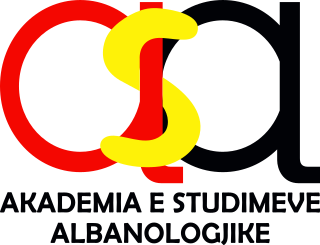
The Academy of Albanological Studies is the main institution of albanology in Albania.
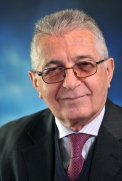
Jorgo Bulo was an Albanian philologist, historian, and literary critic. Since 2003 up to his death (2015) he was a member of the Albanian Academy of Arts and Sciences.

Studime Filologjike is a scientific magazine on Albanian language and literature, published by the Centre of Albanological Studies. It publishes linguistics studies, literary historical studies, old texts, resumes of scientific work on literature criticism and linguistics, etc.

Gjuha Jonë is a magazine published in Tirana, Albania, focusing on the standard and literary Albanian language. It is published by the Centre of Albanological Studies. Its main functions consist of enlarging the functionality of the standard Albanian language and elevation of its social prestige, the educational system and staff, strategies on augmentation of press organs and publishing media, and increase of the researchers in the linguistics field.

Albanological Institute of Pristina is the main Institute of Albanology in Pristina, Kosovo. It is an independent public institution. Together with the Centre of Albanological Studies in Tirana, they represent the core scientific research centers on Albanology.
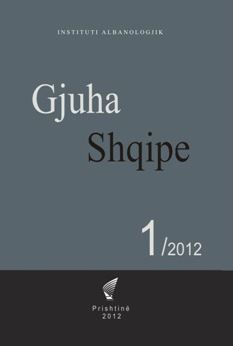
Gjuha Shqipe is a scientific magazine published by the Albanological Institute. It focuses on topics related to the Albanian language, its purification, spread, and development, and possible changes on its standard form.

Studia Albanica is a biannual scientific journal published by the Social and Albanological Studies Section of the Academy of Sciences of Albania. It was established in 1964. It covers Albanology, including studies on the Albanian language and literature, and history. The articles are published in their original language, although French is used by its editorial staff. The editor-in-chief is Seit Mansaku.
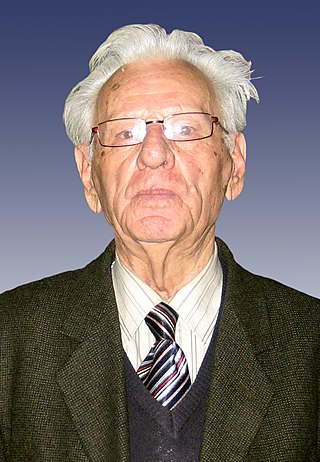
Idriz Ajeti was an Albanologist from Kosovo and one of the main researchers and authorities on the Albanian language studies of post World War II. He was involved for a long period in the academic life of the University of Pristina, and was a member of the Academy of Sciences and Arts of Kosovo, being its chairman for seven years.
Marenglen Verli is an Albanian historian and scholar. Since 2009, he is a member of the Academy of Sciences of Albania.
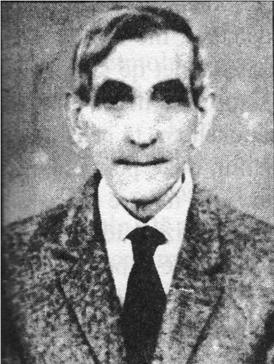
Tahir Nasuf Dizdari was an Albanian orientalist, folklorist, and scholar. He was the main orientalist in Albania, and contributed in identifying and studying oriental words borrowed from Albanian.
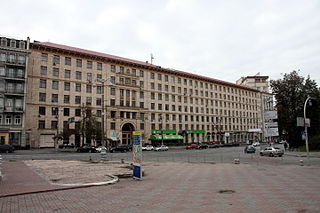
The Rylsky Institute of Art Studies, Folklore and Ethnology is a research institute in Kyiv, Ukraine, established in August 1936.

Injac Zamputi was an Albanian scholar, writer, and historian.

Gruemiri is a small historical Albanian tribe (fis) in the former municipality of Gruemirë in the region of Malësia.
E Bukura e Detit is a character in Albanian mythology and folklore, depicted in some traditions as a sea-fairy / nymph, and in other traditions as a sea goddess, the counterpart of e Bukura e Dheut and i Bukuri i Qiellit. In some Albanian traditions she is regarded as the sister of e Bukura e Dheut.
















